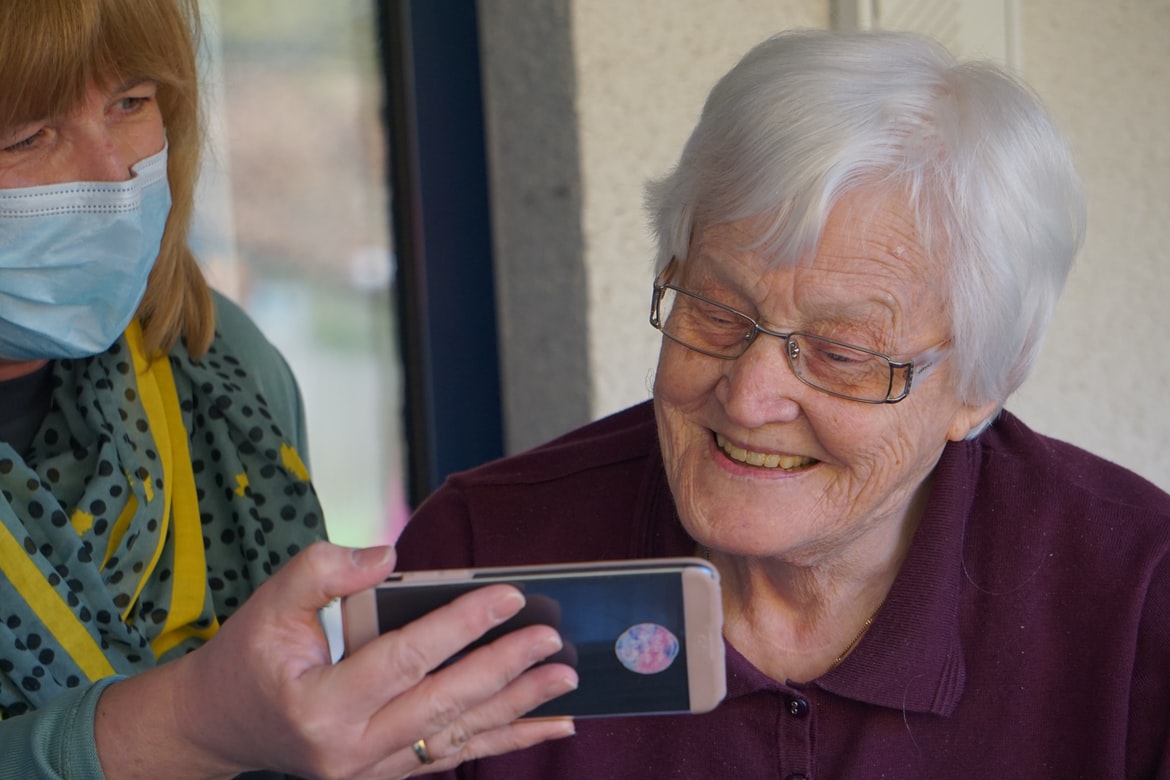
Senior care encompasses:
- Long-term care
- Assisted living
- Senior housing
Many seniors require senior care when they start experiencing health problems that make it harder for them to carry out activities of daily living (ADLS), such as cooking or bathing.
Physical health problems that are common among the elderly population include injuries and sensory problems, like trouble hearing. Cognitive health issues include memory loss and language difficulties. Emotional health issues include social withdrawal and loneliness.
In the recent past, it was typically caregivers, family members, and friends who were first to notice when seniors started experiencing difficulties with ADLs and therefore required senior care. Nowadays, however, modern medical technology designed for seniors, otherwise known as AgeTech, can detect when seniors are struggling with ADLs well before people do.
AgeTech can also monitor an elderly person’s health and behavioral patterns and alert caregivers when changes occur.
AgeTech and Senior Care
AgeTech is any kind of technology that can help seniors monitor their physical, cognitive, and emotional health, and detect when warning signs pop up.
For instance, AgeTech cameras can detect when seniors start taking more trips to the bathroom than usual, which may indicate kidney troubles. Other kinds of AgeTech can detect when a senior starts spending more time alone, which may indicate social withdrawal or depression.
When these and other warning signs pop up, it may be time for seniors to seek senior care by, for instance, moving into retirement residences like All Seniors Care Living Centres, where seniors find communities and enjoy the company of their friends and peers, engage in intellectually stimulating activities, and benefit from the ability to age in one place.
AgeTech and Quality of Life
AgeTech does not only apply to seniors’ health. It is any type of technology that improves their overall quality of life.
Some AgeTech initiates conversation, encourages seniors to exercise and get in touch with their loved ones, and stay connected with the outside world. Other kinds of AgeTech, like robotic dogs, provide company for seniors who lack the mobility required to look after a pet.
The AgeTech Industry
AgeTech markets include
- Health
- Medication management
- Personal emergency response system (PERS)
- Rehabilitation
- Wellness
- Smart home
- Fitness
- Fall prevention and detection
- Smart home
- Independence
- Mobility
- Everyday assistance
- Sensory aids
- Transportation
- ADL
- Finance
As AgeTech advances, the AgeTech industry grows. This means that, as baby boomers age, they will have more and more access to technology designed to improve the quality of their lives.
One of the most exciting examples of advanced AgeTech today are virtual reality devices for seniors with neurodegenerative diseases, as well as for seniors who have experienced a brain injury, stroke, or spinal cord injury. These VR devices use machine learning to provide games and virtual therapy exercises, which record data including kinematic responses, and engage seniors in cognitively stimulating activities.
The future of AgeTech is the future of senior care.